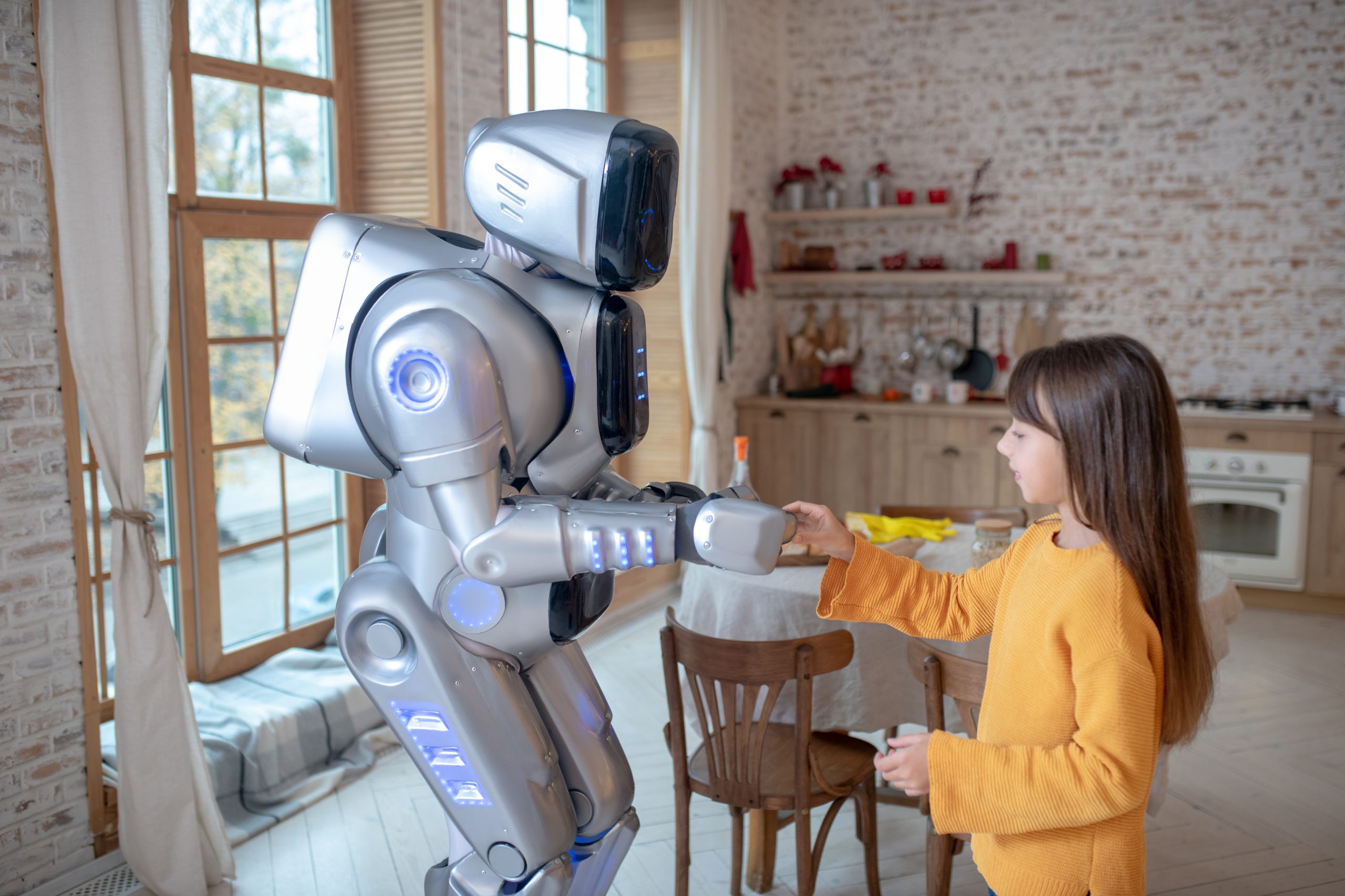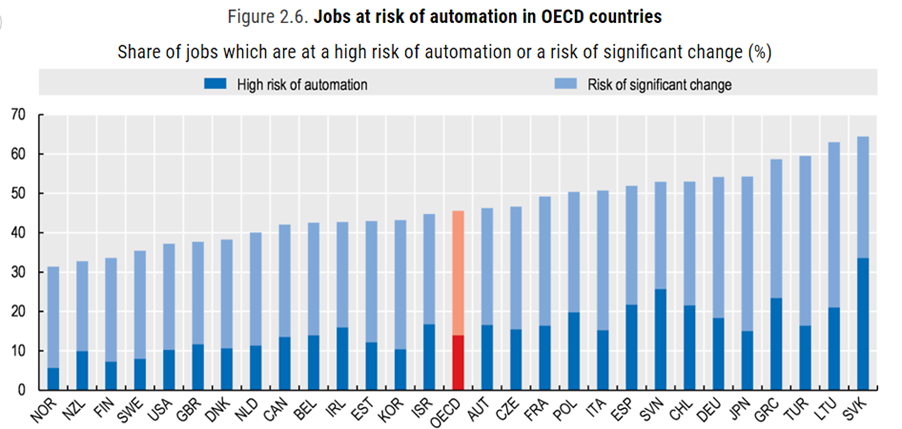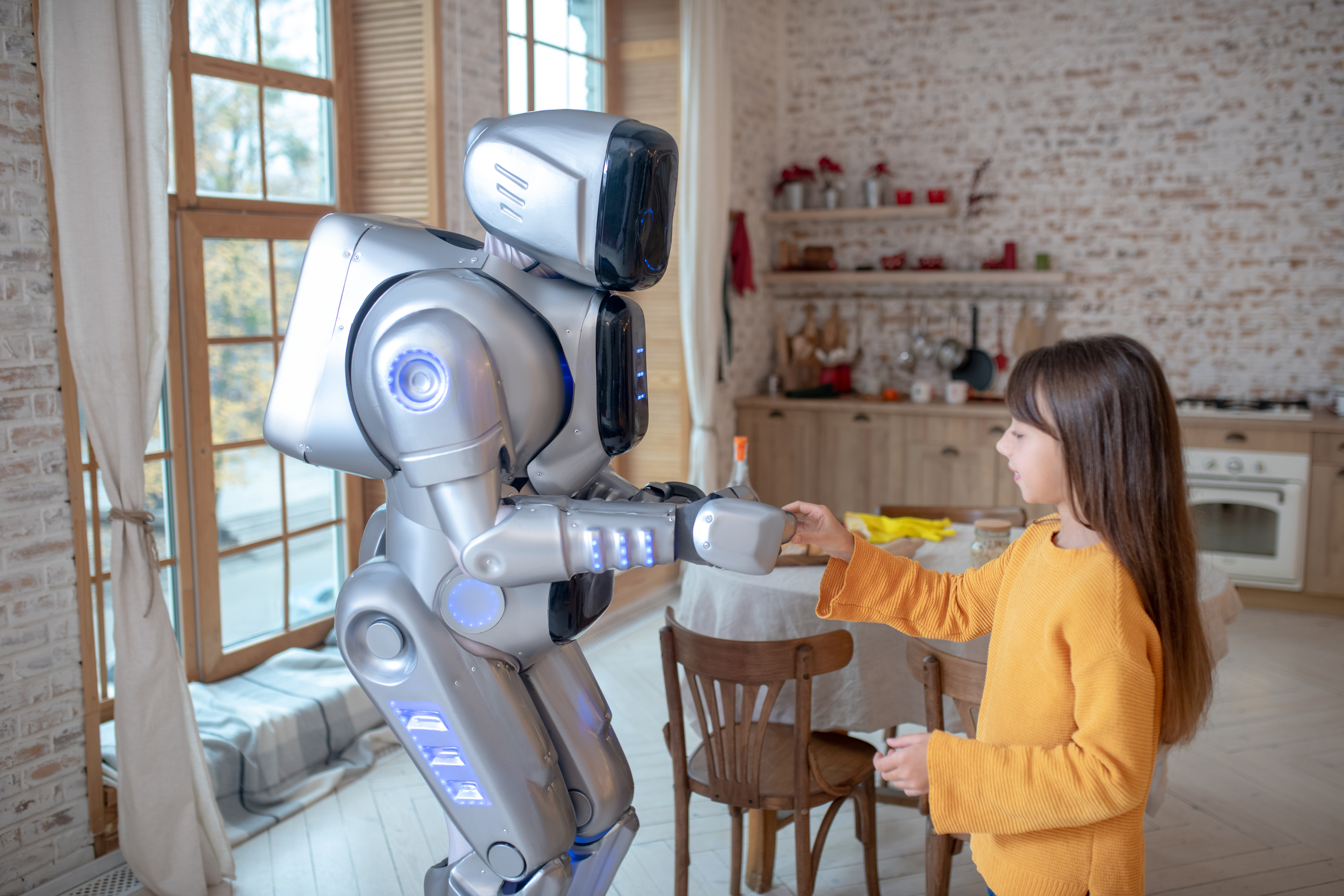21/04/2020
According to an OECD report, 14% of the world’s jobs could be affected by the emergence of the Artificial Intelligence. The percentage is somewhat higher in Spain, up to 22%, although in general terms it is lower than expected. Not all jobs can be replaced, because it will not always be possible or efficient.
However, thousands of jobs will be replaced or modified by robots and this means that, as explained by Juan Ignacio Rouyet in the latest issue of On the mornings of tomorrow, we must be aware of the risks that these technologies already entail and be prepared to minimize and manage them as effectively as possible.
Quint’s Delivery Director was the last guest at the breakfast talks organized by DigitalES -now streaming- and he identified seven risks that should be identified and combated as a result of the massive adoption of Artificial Intelligence. Doing so intelligently and ethically will, in his opinion, determine the success of the implementation of these technologies.
- Impact on behavior
The first example is already a daily occurrence in many homes. Children treat virtual assistants uneducated, as Alexa or Siri obey without the need to ask them for things please. The risk is that children may transfer these behaviors to their relationships with people, something that, as this Washington Post article warns, is already beginning to happen. More curious but less educated children.

- Artificial stupidity
It is becoming increasingly difficult to fool the machines. But it can be done. «We imagine there’s a little human brain inside the computer, but no, it’s just programming and math,» explains Meredith Broussard, author of the book Artificial Stupidity. They are not foolproof: there are make-up and wardrobe techniques to fool facial recognition systems .
As Rouyet explained, work remains to be done to achieve fully efficient Artificial Intelligence.
- Bias and lack of machine neutrality
The artificial intelligence system used by judges in the U.S. as an advisor is biased and tends to advise against freedom for black citizens more often than for white citizens. The algorithm analyzes 173 variables – none of which is race – and gives a probability of recidivism from 0 to 10. The problem is not so much the machine, but the risk of the judge delegating to it.
- Artificial Intelligence Security
The video of Barack Obama insulting Donald Trump went viral some time ago in the United States. And yet, it was totally false. Artificial Intelligence can become a great ally to fabricate fake news if we do not use it with the appropriate ethics.
In this particular case, the video is a creation of FakeApp, with the help of Adobe After Effects. This software uses machine learning to scan people’s faces in a video, and impersonate them.
https://www.youtube.com/watch?time_continue=13&v=cQ54GDm1eL0&feature=emb_logo
- Unintended consequences
In July 2017, all the alarm bells went off. Two Facebook chatbots had developed a language of their own that their programmers did not understand.
It was, however, a simple programming error. Ramón López de Mántaras, an expert in artificial intelligence at the CSIC, argues that no machine has intentions, nor will they ever have them. «They can teach themselves to play Go and beat a champion, but they don’t know they’re playing. If we were to set that same machine to distinguish pictures of dogs and cats it would forget all of the above. They can only do one thing at a time.»
- Impact on employment
Juan Ignacio Rouyet put the impact at 14% worldwide and stressed that the implementation of Artificial Intelligence is not always possible or desirable, whether for reasons of efficiency, ethics or legality.

- Robot rights
Finally, the president of the Think Tank «We the Humans» asserted that robots should not have rights, because they do not have responsibilities either. «As of today a robot is not free, therefore it is not accountable to anyone. It is the people behind an intelligent system who will have to answer to anyone,» he said.
Complete talk available in this video:











